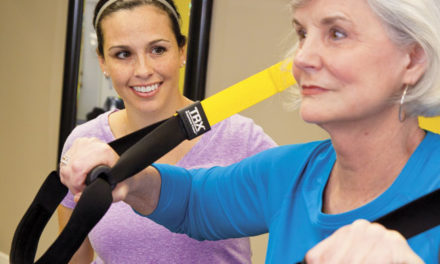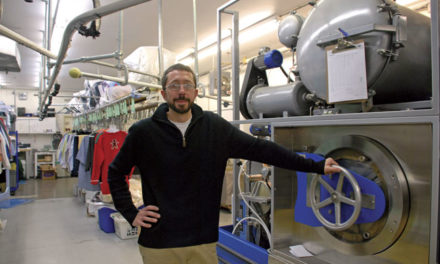BY ELISABETH ANDREWS
For most addictions, treatment involves cutting out the behavior completely, whether the problem is alcohol abuse, drug use, or gambling. But what do you do when you’re addicted to food?
“Compulsive eating is a very difficult addiction to overcome, because you still need to eat,” says Marjorie (not her real name), 58, a member of Overeaters Anonymous of Southcentral Indiana. Moreover, “Food is everywhere. It’s legal. It’s encouraged. It’s fun.”
Food can also feel like a trap for people who routinely eat in an out-of-control and often secretive manner. Though eating more than necessary is unfortunately the American cultural norm, those who struggle with compulsive eating tend to binge alone, in response to seemingly uncontrollable urges, and to suffer from overwhelming remorse and shame about their eating habits. Overeaters Anonymous (OA) offers a means of addressing these behaviors through the same 12-step framework used by groups like Alcoholics Anonymous and Narcotics Anonymous.
“It’s just like any other addiction, but it just so happens that food is our drug of choice,” says Dana (also not her real name), 42, another local member of OA. She explains that compulsive overeaters use food to temporarily escape from reality and numb uncomfortable feelings. Participants in OA work on addressing the emotional and psychological roots of their behavior and developing a plan to “abstain” from overeating.
It can be difficult to draw a line, though, between pathologically addictive behavior and the near-universal American practice of consuming more calories than the body requires. On the OA website (oa.org), the list of traits that could indicate a problem with overeating includes eating when not hungry, failing to diet successfully, and experiencing lifestyle limitations as a result of weight problems. With more than two-thirds of the American adult population overweight and one-third obese, many people may be able to identify with the struggles of compulsive overeaters.
Ann Smith, a weight-release coach in Bloomington (insideout-coaching.com), says part of her practice “addresses the emotional attachment to eating too much” that can be an issue for people who overeat. For many of her clients—those who eat compulsively as well as those who have simply developed poor habits—the biggest roadblock is the belief that one is incapable of change.
Says Dana, “I’m still not certain I can ever maintain a healthy weight. But the guiding concepts for all of the 12-step programs are ‘One day at a time’ and ‘Progress, not perfection.’”















